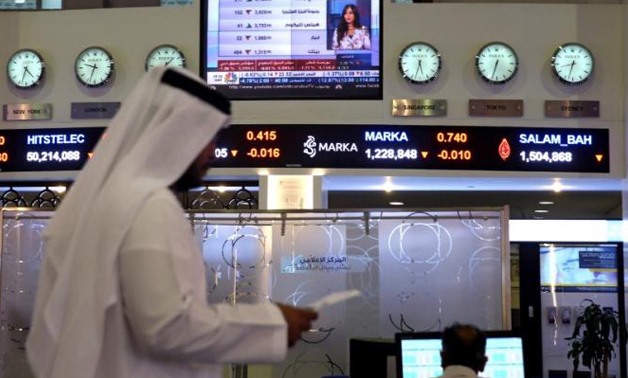
World Stock Market - Reuters
NEW YORK - 5 June 2017: World equity markets dipped with oil prices on Monday amid concerns a diplomatic rift among some key Middle Eastern energy producers may weaken a pact on output cuts, while sterling firmed as investors focused on the impending British election.
The U.S. dollar edged up off seven-month lows hit on Friday after a weaker-than-forecast jobs report as U.S. Treasury yields rose and markets signaled they expected the Federal Reserve to raise interest rates next week.
Key U.S. stock indexes were little changed to lower as investors mostly shrugged off weekend attacks in London and after Arab states cut ties with Qatar over alleged support for Islamist and Iran.
The Dow Jones Industrial Average was flat at 21,205.88, the S&P 500 lost 1.45 points, or 0.06 percent, to 2,437.62 and the Nasdaq Composite dropped 1.79 points, or 0.03 percent, to 6,304.00.
The pan-European FTSEurofirst 300 index lost 0.09 percent and MSCI's gauge of stocks across the globe shed 0.10 percent.
In the Middle East, Qatar's main stock index fell more than 7 percent after Saudi Arabia - the world's biggest crude oil exporter - the United Arab Emirates, Egypt and Bahrain cut ties with Qatar, accusing the Gulf Arab state of supporting terrorism.
Qatar is the world's biggest supplier of liquefied natural gas (LNG) and a major supplier of condensate.
Brent crude oil, the international benchmark, rose more than 1 percent at one point, recouping some of last week's 4 percent losses, but turned tails to drop back below $50 a barrel.
It was last at $49.16, down 1.58 percent, with U.S. crude falling 1.45 percent to $46.97 per barrel.
"I think it's still going to be a bit of a debate on the true impact it can have on the oil market," said Olivier Jakob, strategist at Petromatrix.
"In terms of oil flows it doesn't change very much but there is a wider geopolitical impact one needs to consider," he said, adding that a breakdown in relations between Qatar and Saudi Arabia could hamper an OPEC-led deal on production cuts.
Britain's pound initially fell half a cent against the dollar after the third militant attack in Britain in less than three months but recovered and last traded at $1.2924, up 0.24 percent.
Prime Minister Theresa May said Thursday's election would go ahead. Opinion polls in the past week have put her Conservatives ahead, though with a narrowing lead over the Labour opposition.
"Even if May does just about enough to increase the majority - that could still potentially be sterling positive," said ING currency strategist Viraj Patel.
The dollar index rose 0.12 percent, having hit its lowest since Nov. 9 after Friday's report showing the U.S. economy added fewer jobs than expected last month. Unemployment, however, fell to a 16-year low of 4.3 percent.
In mid-morning trading, U.S. 10-year Treasuries were last down 4/32 in price, with yields at 2.173 from 2.159 percent late on Friday.
Markets see a 94 percent chance of the Federal Reserve raising interest rates by a quarter point at its June 13-14 meeting.
European Central Bank policymakers meet this week. They are expected to take a more benign view of the euro zone economy and discuss dropping pledges to ramp up economic stimulus if needed, sources with direct knowledge of the discussions told Reuters last week.
The euro fell 0.27 percent to $1.1249 and the Japanese yen weakened 0.05 percent versus the greenback at 110.46 per dollar.
Gold hit a six-week high of $1,282 an ounce, with traders citing the U.S. jobs report and reduced prospects of aggressive Fed rate increases. It last traded at $1,281.01.

Comments
Leave a Comment